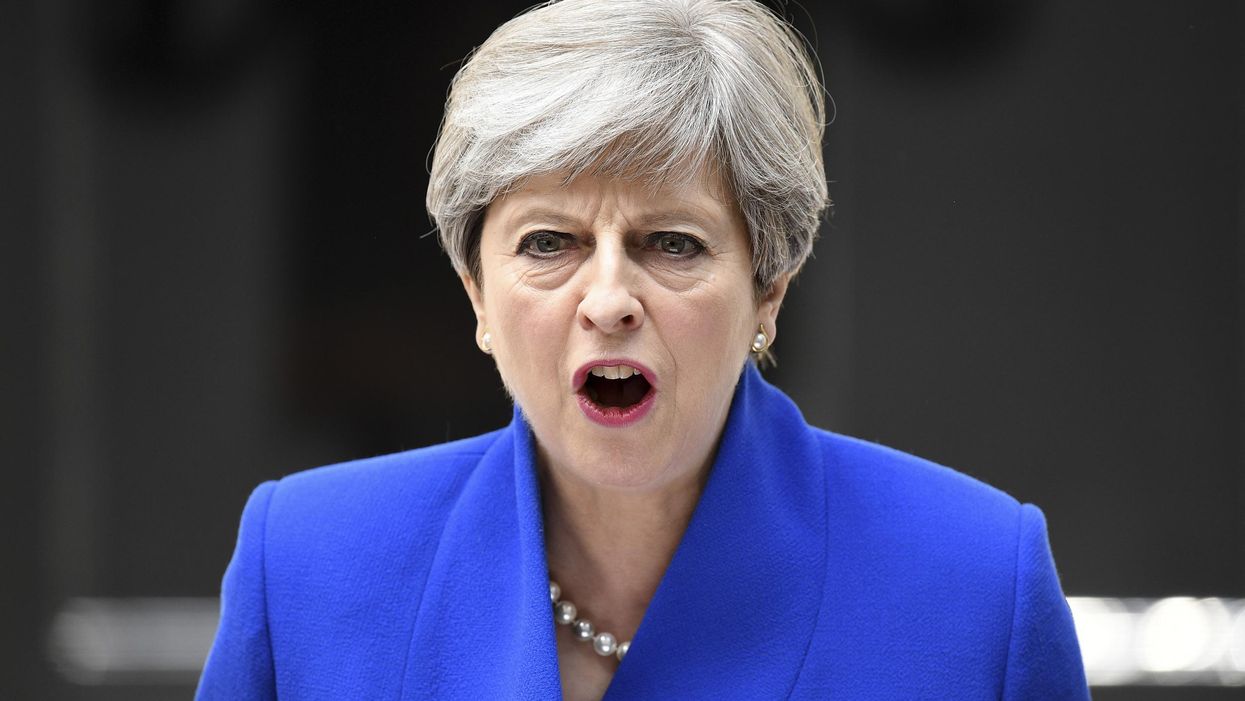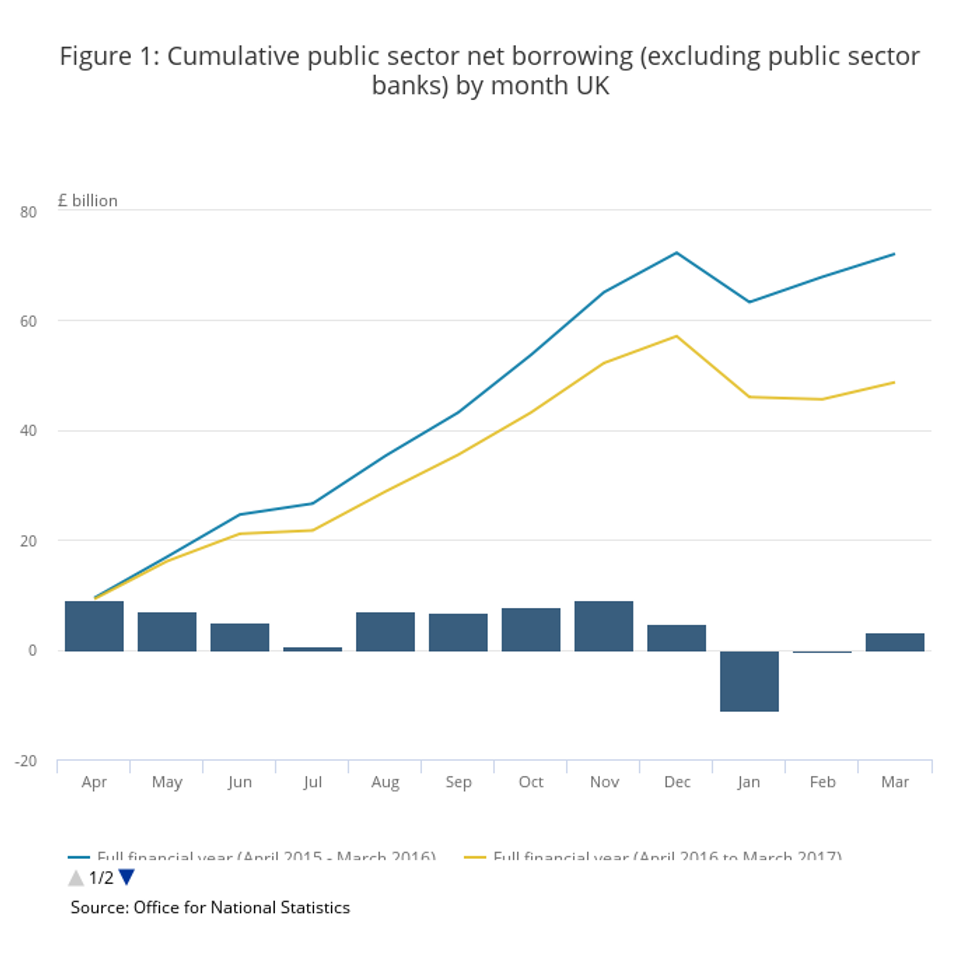
The Conservative Party, having spent the last seven years hammering Labour on economic policy, have finally realised that they've been in charge for it all that time.
They've changed tack, and are starting to blame economic insecurity on the very prospect of a Labour government, rather than the policy-setters (themselves).
The referendum has not harmed growth, investment or confidence.
Let's just unpack this statement:
- UK inflation is the highest it has been since 2013, up to 2.9 per cent. The pound nosedived in the wake of the Brexit vote and fell again after the election that Theresa May promised would "stabilise" things. The biggest contributor to the increase in the rate were games and toys, alongside electricity and food prices.
- Public sector finances are worse for wear as borrowing has steadily increased since the Brexit vote.
- An Ipsos Mori survey of more than 100 of the largest 500 companies found that 56 per cent of senior executives felt the referendum was already having a negative effect on business.
- The Office of National Statistics (ONS) reported in December that British businesses are more reluctant to spend. Investment was down 1.6 per cent compared to a year prior.
- EU workers and residents have already started leaving, as their rights have yet to be guaranteed. There were 2.3 million EU nationals in the British workforce at the time of the Brexit vote.
The majority of experts conclude that the vote for Brexit is starting to have major negative consequences - and that's before we've even left the EU.
Let's not forget, that the Conservative Party called the referendum in the first place to appease the Eurosceptic wing of their party. It resulted in Cameron's resignation and the economic uncertainty we currently find ourselves in.
We now face the prospect of a Conservative government propped up by the Democratic Unionist Party (DUP) in whom public confidence is obviously lacking.
These are all things we know for sure.
To cap it all, Theresa May may have just thrown out austerity politics to appease her party's 1922 committee.
If austerity is not a winning policy and Corbyn chose a narrative of spending the Conservatives are now adopting, you have no central point.
In addition, a Corbyn government is a hypothetical with less market influence than the decisions of those in power.
There's a reason Theresa May has stopped saying Strong and Stable since the election.
More: Tories aren't just losing young people, it's older voters too
More: 5 terrifying facts about the party now propping up Theresa May














